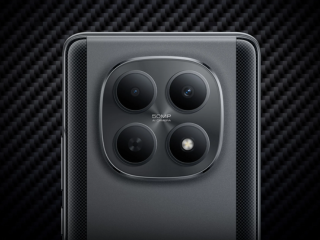- Home
- Telecom
- Telecom News
- Many Telecom Operators Have Executed 100 Day Call Drop Plan, Says COAI
Many Telecom Operators Have Executed 100-Day Call Drop Plan, Says COAI

Many telecom service providers have executed the 100-day plan to tackle the call drop menace and achieved positive results, Rajan S. Mathews, Director General, Cellular Operators Association of India (COAI), said on Monday.
"Many of the operators have executed the 100-day plan. There is substantial reduction in call drop problem now," Mathews told IANS ahead of Communications Minister Manoj Sinha's November 1 meeting with CEOs of telecom companies to take stock of the call drop issue.
"But problems still remain in some areas, like Lutyens' Delhi, South Delhi and some other places," he added.
Earlier, Telecom Secretary J.S. Deepak said the sectoral regulator - Telecom Regulatory Authority of India (TRAI) - has informed that there has been a substantial improvement in the call drop situation.
"We had a meeting in June, they (telecom service providers) gave us a 100-day plan. There has been, we believe, from TRAI figures lot of improvement in call drops. There were 54 networks which were not performing up to the standard in December 2015, and now it is down to only 19," Deepak added.
The telecom companies had given a 100-day roadmap to the government in June to improve the call drop situation.
"They assured us that the target for the 100-day programme, as committed to the (telecom) secretary, will be met. They indicated that from the beginning of June 10 (when the 100-day programme started), there will be addition of around 60,000 BTS (base transceiver station) in 100 days across the country, out of which 48,000 have been installed in the first 45 days," Manoj Sinha said on July 25.
The service providers have committed an investment of Rs. 12,000 crores for installing 60,000 BTS to address the situation by arresting call drops.
Catch the latest from the Consumer Electronics Show on Gadgets 360, at our CES 2026 hub.
Related Stories
- Samsung Galaxy Unpacked 2025
- ChatGPT
- Redmi Note 14 Pro+
- iPhone 16
- Apple Vision Pro
- Oneplus 12
- OnePlus Nord CE 3 Lite 5G
- iPhone 13
- Xiaomi 14 Pro
- Oppo Find N3
- Tecno Spark Go (2023)
- Realme V30
- Best Phones Under 25000
- Samsung Galaxy S24 Series
- Cryptocurrency
- iQoo 12
- Samsung Galaxy S24 Ultra
- Giottus
- Samsung Galaxy Z Flip 5
- Apple 'Scary Fast'
- Housefull 5
- GoPro Hero 12 Black Review
- Invincible Season 2
- JioGlass
- HD Ready TV
- Laptop Under 50000
- Smartwatch Under 10000
- Latest Mobile Phones
- Compare Phones
- OPPO A6 Pro 5G
- OPPO A6s
- OPPO Reno 15 Pro Max
- Honor Win RT
- Honor Win
- Xiaomi 17 Ultra Leica Edition
- Xiaomi 17 Ultra
- Huawei Nova 15
- Asus ProArt P16
- MacBook Pro 14-inch (M5, 2025)
- OPPO Pad Air 5
- Huawei MatePad 11.5 (2026)
- Xiaomi Watch 5
- Huawei Watch 10th Anniversary Edition
- Acerpure Nitro Z Series 100-inch QLED TV
- Samsung 43 Inch LED Ultra HD (4K) Smart TV (UA43UE81AFULXL)
- Asus ROG Ally
- Nintendo Switch Lite
- Haier 1.6 Ton 5 Star Inverter Split AC (HSU19G-MZAID5BN-INV)
- Haier 1.6 Ton 5 Star Inverter Split AC (HSU19G-MZAIM5BN-INV)

















